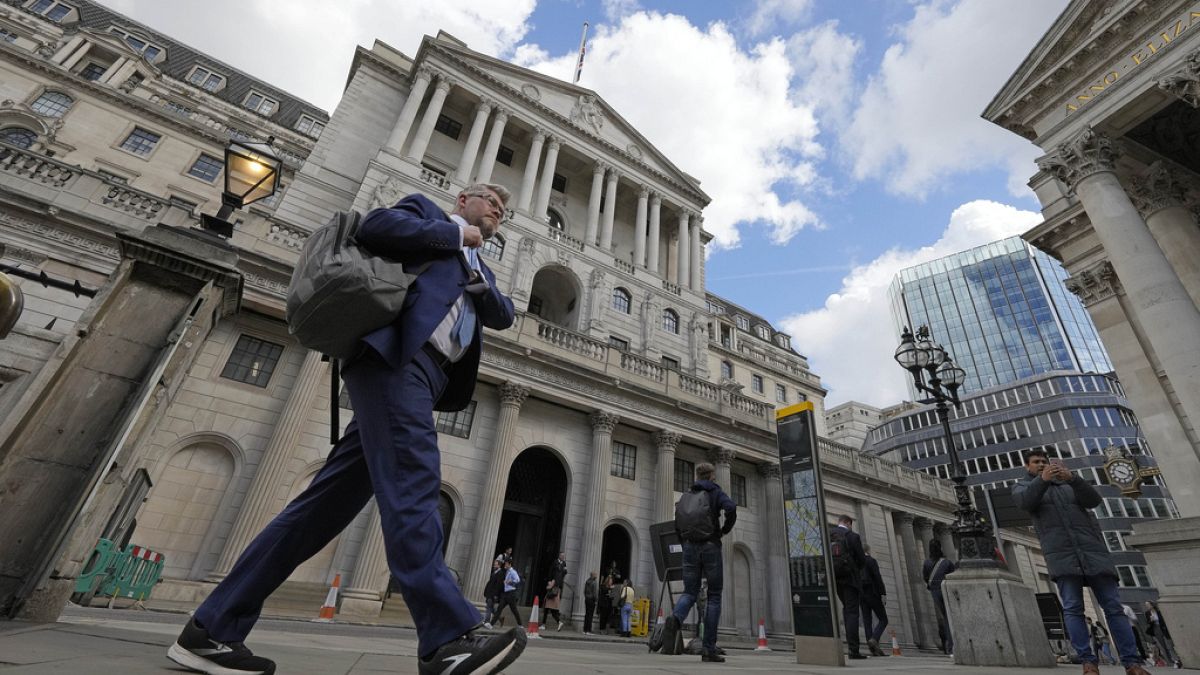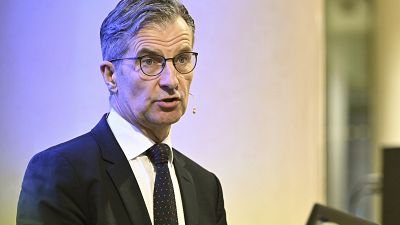Following a surprise decrease in inflation in August, the Bank of England has announced its decision to pause interest rates, in contrast to many of the UK’s neighbours.
The Bank of England (BoE) has chosen not to increase interest rates, following in the footsteps of the US and Swiss central banks, in a trend that experts say might give cause for cautious optimism.
The decision to keep the main interest rate unchanged at 5.25%, a 15-year high, did not come without debate, as four out of nine members of the bank’s Monetary Policy Committee advocated for a rate hike to 5.5%.
A pivotal factor influencing the BoE's decision was the surprising decline in inflation to 6.7% in August, marking its lowest level since Russia's invasion of Ukraine in February 2022.
Nevertheless, it is important to underscore that inflation in the UK remains significantly above the central bank's 2% target and higher than in other major economies.
After the news of the UK’s decreased inflation on Wednesday, many analysts said they could predict the change in strategy.
“We’ve seen unemployment rates rise and vacancies falling,” Heidi Karjalainen, a research economist at the Institute for Fiscal Studies, told Euronews. “Given those signs, and the prediction that interest rates will continue to fall, the BoE has predictably decided to keep things where they are.”
Looking ahead with caution
The BoE’s governor Andrew Bailey welcomed the recent dip in inflation but emphasised the need for ongoing vigilance.
Additionally, the BoE has introduced an accelerated programme to reduce its government bond stockpile, with plans to decrease it by £100 billion (€115 billion) over the next year, reaching a total of £658 billion.
These decisions collectively underscore the BoE's delicate balancing act between addressing inflation concerns and supporting economic stability in a challenging and evolving economic landscape.
As the world watches, central banks across the globe are navigating uncharted waters in their quest to strike the right balance between controlling inflation and sustaining economic growth.
“With inflation still well above target and after such a long period when monetary policy has been far too loose, the bank is unlikely to be in any hurry to cut interest rates again either.” Julian Jessop, economics fellow at the free market think tank of the Institute of Economic Affairs, said.
A soft landing?
The shift in the central bank's stance is in line with a global trend where central banks worldwide are approaching the end of their forceful rate-hiking cycles.
These cycles were initially launched to counteract inflation, which has been fanned by the COVID-19 economic resurgence and Russia's conflict in Ukraine. The recent decision by the US Federal Reserve and the Swiss National Bank to leave rates unchanged further underscores this pattern.
“There is a change in policy stance to perhaps see how restrictive monetary policy is going to impact inflation,” Dr Andrea Bubula, senior lecturer of economics at Columbia University told Euronews. “By halting the increases in rates, they will learn if over time the unemployment and inflation increases.”
The ripples are not being felt everywhere as Sweden and Norway's central banks have proceeded with quarter-point rate hikes, whilst Turkey’s central bank has raised interest rates to 30%, the fourth increase since June in a bid to tackle ongoing high inflation.
The European Central Bank may offer a light at the end of the tunnel as it has hinted that its most recent rate hike might be the last for the time being.
“There is a careful approach, there is a lot of uncertainty,” Bubula explained, “I think it’s a moment to slow down the increases and see what happens. Countries also have their individual approach but there is a change in attitude.”
After two years of uncertainty, there are perhaps signs that there might be a soft landing ahead.



